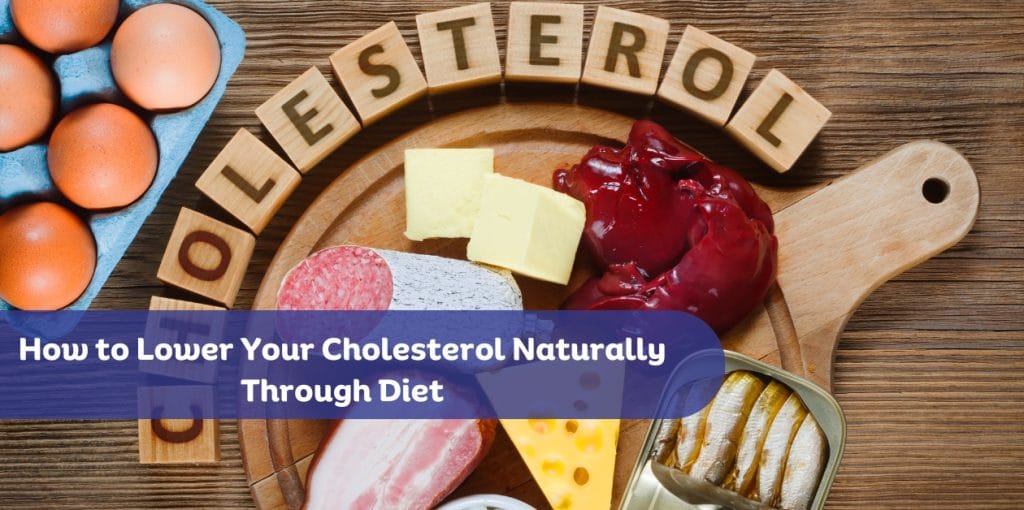How to Lower Your Cholesterol Naturally Through Diet

Cholesterol management plays a critical role in maintaining good heart health and preventing cardiovascular disease. High cholesterol is a major risk factor for heart disease, which remains one of the leading causes of death worldwide. While medication can help control cholesterol levels, a diet for cholesterol management is equally important, particularly for those seeking natural ways to improve cardiovascular health.
Understanding Cholesterol and Its Impact on Heart Health
Cholesterol is a type of fat (lipid) that is essential for several bodily functions, including the production of hormones and vitamin D. However, too much cholesterol in the bloodstream can lead to plaque buildup in the arteries, a condition known as atherosclerosis. This can increase the risk of heart disease, stroke, and other cardiovascular issues.
There are two primary types of cholesterol:
- Low-Density Lipoprotein (LDL): Often referred to as “bad cholesterol,” LDL contributes to plaque buildup in the arteries.
- High-Density Lipoprotein (HDL): Known as “good cholesterol,” HDL helps remove LDL from the bloodstream, reducing the risk of cardiovascular disease.
For optimal heart health, it’s important to maintain a balance between LDL and HDL cholesterol, keeping LDL levels low and HDL levels high. While lifestyle changes, including diet, exercise, and managing stress, can help achieve this balance, diet plays a central role in cholesterol management.
How Diet Can Lower Cholesterol Naturally
If you’re looking to lower your cholesterol naturally, a heart-healthy diet is key. Here are some effective dietary strategies to help reduce cholesterol levels:
- Increase Soluble Fiber Intake
Soluble fiber helps reduce the absorption of cholesterol in the bloodstream by binding to cholesterol molecules in the digestive system and flushing them out of the body. Foods high in soluble fiber include:
- Oats and barley
- Beans, lentils, and peas
- Apples and citrus fruits
- Carrots and sweet potatoes
- Flaxseeds and chia seeds
- Incorporate Healthy Fats
Replacing saturated fats and trans fats with healthier fats can help lower LDL cholesterol. Focus on consuming monounsaturated and polyunsaturated fats found in:
- Olive oil and avocado
- Fatty fish like salmon, mackerel, and sardines (rich in omega-3 fatty acids)
- Nuts and seeds (almonds, walnuts, chia seeds)
These fats help reduce inflammation and improve cholesterol levels, supporting overall heart health.
- Choose Plant-Based Proteins
Animal-based proteins, particularly red meat and full-fat dairy products, tend to be high in saturated fats, which can raise LDL cholesterol. Opting for plant-based protein sources can help reduce cholesterol levels. Some heart-healthy plant-based options include:
- Legumes (beans, lentils, chickpeas)
- Tofu and tempeh
- Quinoa and whole grains
- Plant-based protein powders (pea, hemp, or brown rice protein)
- Add Antioxidant-Rich Foods
Fruits and vegetables are rich in antioxidants, which help reduce inflammation and oxidative stress that can contribute to heart disease. Incorporating a wide variety of colorful fruits and vegetables into your diet—such as berries, leafy greens, tomatoes, and bell peppers—can support cardiovascular health and help lower cholesterol.
- Limit Saturated and Trans Fats
Limiting the intake of saturated fats found in fatty cuts of meat, full-fat dairy products, and processed foods can help reduce cholesterol levels. Avoiding trans fats, which are often found in baked goods, fried foods, and processed snacks, is also critical in maintaining healthy cholesterol levels.
- Consider Plant Sterols and Stanols
Plant sterols and stanols are compounds found in certain plant-based foods that help block the absorption of cholesterol. You can find them in fortified foods such as margarine, orange juice, and yogurt drinks. Including these in your diet can help lower LDL cholesterol levels.
Conclusion
Managing cholesterol levels through diet is a powerful and natural way to improve cardiovascular health and reduce the risk of heart disease. By incorporating fiber-rich foods, healthy fats, and plant-based proteins into your daily meals, you can significantly impact your cholesterol levels
If you’re looking to improve your cholesterol levels and heart health, start by making small but impactful changes to your diet, and consider consulting with a healthcare professional to create a personalized plan.
FAQs
You can lower your cholesterol naturally by adopting a heart-healthy diet, rich in fiber, healthy fats, and plant-based proteins, while limiting saturated and trans fats.
Avoid foods high in saturated fats such as fatty cuts of meat, full-fat dairy products, fried foods, and processed snacks. Additionally, limit trans fats found in margarine, packaged baked goods, and fast food.
High cholesterol levels, particularly high LDL cholesterol, can lead to plaque buildup in the arteries, increasing the risk of heart disease, stroke, and other cardiovascular conditions.
Yes, certain cancer treatments like chemotherapy and radiation can impact cholesterol levels, potentially increasing the risk of heart disease.
About Author
Dr. Y Swetha
MBBS ,MD General Medicine
Dr. Y Swetha is a skilled physician currently practicing at PI Health Cancer Hospital. She holds an MBBS from Kamineni Institute of Medical Sciences and an MD in General Medicine from Prathima Institute of Medical Sciences.Dr. Swetha has extensive experience in outpatient, inpatient, emergency, and critical care settings. She is proficient in managing chronic conditions, critical emergencies, and advanced procedures such as ventilator management and catheter placements.Her academic contributions include presentations on deep vein thrombosis, splenic infarcts, and cardiac tamponade. Dr. Swetha also volunteered as a Telemedicine Doctor during the COVID-19 pandemic, demonstrating her commitment to patient care.With a First Class in MD and fluent in English, Telugu, and Hindi, Dr. Swetha is dedicated to providing compassionate and comprehensive medical care.

